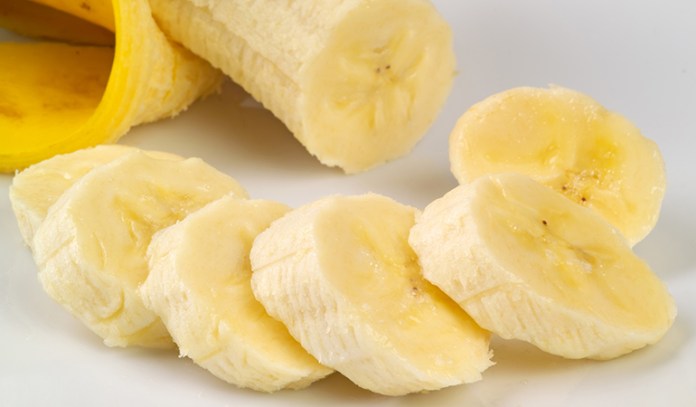Lately, there’s been a lot of talk about alkaline foods. But what does it even mean? As you learn about this buzzword, you will realize that your diet’s pH actually matters. In fact, your risk of chronic disease and inflammation depends on it.
What Are Alkaline Foods?

Every food releases an acid or base when it is digested, absorbed, and metabolized. If a food releases a base, it is alkaline. This is measured by a pH scale of 0 to 14. Acids are below 7, bases are higher than 7, and the body is typically at 7.4.
Now, food isn’t acidic just because it has something like lemon juice or vinegar. The pH refers to the way it acts in the body, not the food itself.
Why Is Alkalinity Important?

Alkaline diets keep some of the most life-threatening diseases at bay:
Controls High Blood Pressure
Alkalinity manages hypertension, or high blood pressure. It is one of the biggest risk factors for heart disease, the leading cause of death for American men and women.1
Fights Diabetes
Type 2 diabetes, the seventh leading cause of death in the US, can also be prevented with alkaline foods. It works by improving insulin resistance and glucose intolerance. However, acidic foods induce metabolic acidosis, a setup for type 2 diabetes.2
Slows The Progression Of Kidney Disease
Age also takes a toll on muscle mass and kidney health, but alkaline foods will help. A 2008 study found that alkalinity preserves muscle mass in older men and women, while a 2015 study discovered that it slows down the progression of chronic kidney disease.3 Meanwhile, metabolic acidosis from acidic foods had the opposite effect.4
Reduces Chronic Inflammation
Alkaline diets also provide antioxidants and anti-inflammatory foods, giving cancer and inflammation the boot. Asthma, calcium kidney stones, and osteoporosis are also less likely.5
Is The Western Diet Balanced?

Pre-agricultural diets were alkaline and full of fresh fruits, veggies, tubers, roots, and nuts. The overall health was also much better. But with the rise of processed foods, our diet acidified and our health took a nosedive. Today, the modern Western diet consists of meat, fish, shellfish, poultry, eggs, cheese, milk, and cereal grains.6 It just goes to show why pH matters!
11 Alkaline Foods To Prevent Chronic Disease
Ready to alkalize your diet? Eat more of these 11 foods.
1. Berries

Fresh fruits like berries are alkaline, delicious, and easy to prep. They are also jam-packed with antioxidants, making them a smart choice for disease prevention.
Berries are actually some of the best sources of antioxidants, according to a 2010 study that tested the antioxidant content of more than 3100 foods. Great sources include Indian gooseberries, goji berries, blackberries, bilberries, cranberries, wild strawberries, and black currants.7
2. Lemons

Lemon might be acidic, but as a fresh fruit, it has an alkaline effect. Use it to flavor water or meals for a nutritious boost. It is the perfect way to “sneak” in some extra alkalinizing action.
3. Bananas

Bananas are travel-friendly, cheap, and alkaline. A banana a day also keeps high blood glucose away, according to a 2014 study.8 It is a must for type 2 diabetes prevention.
4. Oranges

Like bananas, oranges are easy to travel with. Plus, between the alkalinity and vitamin C, they are a smart choice for disease prevention. Eat alone or with a fresh fruit salad.
5. Stone Fruits

Do not forget about stone fruits like peaches, plums, and apricots. These high-antioxidant fruits are best in the summer and fall. In a salad, stonefruits will also sweeten things up.
6. Leafy Greens

From kale to spinach, leafy greens are a must for an alkaline diet. These fresh veggies treat the body to immune-boosting vitamin A.9 The high vitamin K content also reduces inflammation, making it useful for arthritis and other inflammatory diseases.10 It is a great reason to make more green smoothies or salads. Use bigger leaves as wraps to avoid grains, an acidic food.
7. Tomatoes

Tomatoes are alkaline, rich in vitamin A, and full of flavor. Even tomato-based sauces have lots of antioxidants.11 Add them to spiralized veggie “pasta” for an alkaline meal.
8. Sweet Potatoes

Tuber vegetables like sweet potatoes are also alkaline. Other options include yams and jicamas, so do not feel limited! They will taste just like fall.
9. Ginger

Root veggies are highly alkaline, and ginger should be at the top of your list. Gingerols, its active compounds, are anti-inflammatory, anti-oxidative, and anti-bacterial.12 No wellness routine is complete without it. Dried ginger also works, so add it to your meals!
10. Turmeric

To fight cancer, eat more turmeric, an alkaline root. A 2017 study found that it suppresses tumor cells while offering anti-inflammatory, antimicrobial, and antioxidant effects.13 Looking for more root vegetables? Reach for carrots, parsnip, rutabaga, beets, turnips, onions, and garlic.
11. Nuts

According to The American Journal of Clinical Nutrition, nuts are also alkaline.14 Examples include almonds, peanuts, cashews, and walnuts. Add them to salads for a crunch or dip fresh fruit into nut butter.
References





